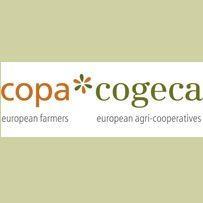
European farming organisation Copa-Cogeca has urged EU agriculture ministers to prevent what it says will be 'a complete collapse' of the market by ensuring the EU agri-food sector remains competitive and that there is a strong Common Agricultural Policy (CAP) after 2013.
Speaking at an informal meeting in Brussels, Copa president Padraig Walshe and Cogeca president Paolo Bruni reminded ministers that farming was, first and foremost, an economic sector that underpinned the largest manufacturing sector in Europe.
Mr Walshe warned: 'I have heard rumours that the EU Commission is thinking about a significant shaping of Pillar 1 under the CAP to bring a much greater environmental focus into the policy. This is not acceptable and could seriously harm the economic performance and competitivity of farming in the EU.'
He also questioned the Commission's decision to restart talks on liberalising trade between Europe and the Latin American trade bloc Mercosur, a move he said would have a 'devastating impact' on the EU agriculture sector.
'Imports from these countries do not have to comply with the same high EU standards,' Mr Walshe commented. 'To maintain food security and employment for over 28m jobs in EU rural areas, a strong CAP, which preserves the economic role of farmers in producing food, is crucial.'
Copa-Cogeca also called on the remaining market management measures within the CAP, including direct payments to farmers, to be retained after 2013 in order to stabilise farmers' incomes and help them weather the storm of increasing market volatility.
'The second pillar of the CAP should be the instrument to deliver additionality, providing targeted services and agri-environment measures,' Mr Walshe added.
Meanwhile, Cogeca president Paolo Bruni stressed: 'The food chain currently does not work properly. The existing lack of transparency and the problems with late payments, market abuses and distortions of competition in the food supply chain cannot be accepted.
'I want to see better prices for farmers and agri-cooperatives. European Competition rules must be adjusted to enable cooperatives and producer organisations to grow in size and scale, giving them more power in the food supply chain.
'To sum up, a strong CAP is vital to provide EU consumers with high-quality food whilst ensuring a fair and stable income for EU farmers.'
Mr Walshe gave a final word of warning: 'We had a crisis in EU farm incomes in 2009. This year we have experienced once again increased volatility and failures in international trade. Do we really have to wait for a complete collapse of the market for you to take notice?'



